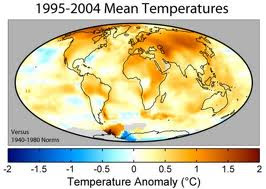Tuesday, May 1, 2012
Feelings Or Knowledge?
What is your definition of science?
Science has produced and continues to produce huge benefits for humankind (but technology has its downside--end of world downside, global warming, nuclear annihilation, gene pool uncertainties etc.) so I believe it is extremely important to evaluate science with a critical eye--an eye to where science came from and how it fits into the overall scheme of what benefits humankind; that said I offer the following:
In his book, The Nature of Physical Reality, Margenau elaborates on what the theoretic component of our experience entails when he says, “…that we come to knowledge of our experience in two ways—through the mental states of prepositional attitudes and sensation.” He then lumps these attitudes and sensation together in what he calls our P-plane experience—a combination of immediate experience with its significance (science is only part of what this significance entails). In this way we come to "know" the same thing in two different ways, through sensed qualia and through the significance that we attach to this sensed qualia. For Margenau, there are four levels of P-plane significance. Language, with its lexical, syntactical, and contextual designations represents the first level. The second level, science, raises P-plane significance by connecting P-plane experience with the propositional aspects of our cognitive experience via what Margenau calls rules of correspondence—the sensed aspect of what may be inferred or deduced from theoretical postulates. On the third and fourth level of P-plane experience, significance deals with ethical behavior and existential meaning. Here the cognitive connection to P-plane experience does not entail the rigor of analysis that describes the scientific method. But, according to Margenau, this lack of rigor does not impose a lesser degree of significance.
Feelings or knowledge?
Considerable emotional currency goes into preserving the meanings that give us comfort. A passionate desire for wealth and power, however, has little in common with the empowering emotion that calls us to love, beauty and truth. The gorgeous sunset that sometimes swells our eyes to tears is not just a product of the spinning earth; it is also part of the spontaneous, pulsating, emotion that flows from the whole of Mother Nature. The material of the poet, painter, and musician is the empowering emotion that inspires life, imagination, and awe. The syntactically designated, indirectly and experimentally verified, theoretic component of knowledge treats the real stuff of reality—the aesthetic component, as a mere sign. The aesthetic component of our experience is not a mere sign. The immediately grasped, emotionally moving ground out of which all things arise, beckons us to seek the impossible, express the unspeakable, and imagine the inconceivable.
Emotions, therefore, are not, as Locke believed, and many of the religiously informed persons who followed him also believed, the product of bestial urges that must be subdued. It is also unfortunate that Plato, although recognizing emotions to be an inseparable part of the human psyche, identified them with evil. For Plato, reason was the great charioteer, forever reining in the unruly emotions. Emotion must be valued on par with reason. Indeed, reason becomes sterile without emotion and emotion without reason becomes another word for misery. The poet William Blake said it best when he said: “It is good when you are in a passion, but not when a passion is in you.” It is high time that we catch up to the curve (instead of lagging far behind it) and give emotions and sentiments the psychological freedom they deserve. In order to do this we need to break the habit of regarding feelings, emotions, and the immediately given portion of human nature and the nature of all things as being superficial appearances,-- mere symbols for validating an out-dated worldview. It is time to regroup, to move beyond that which was once considered progressive but now inhibits, to move beyond the dichotomy that separates feelings and knowledge!
Subscribe to:
Post Comments (Atom)








No comments:
Post a Comment